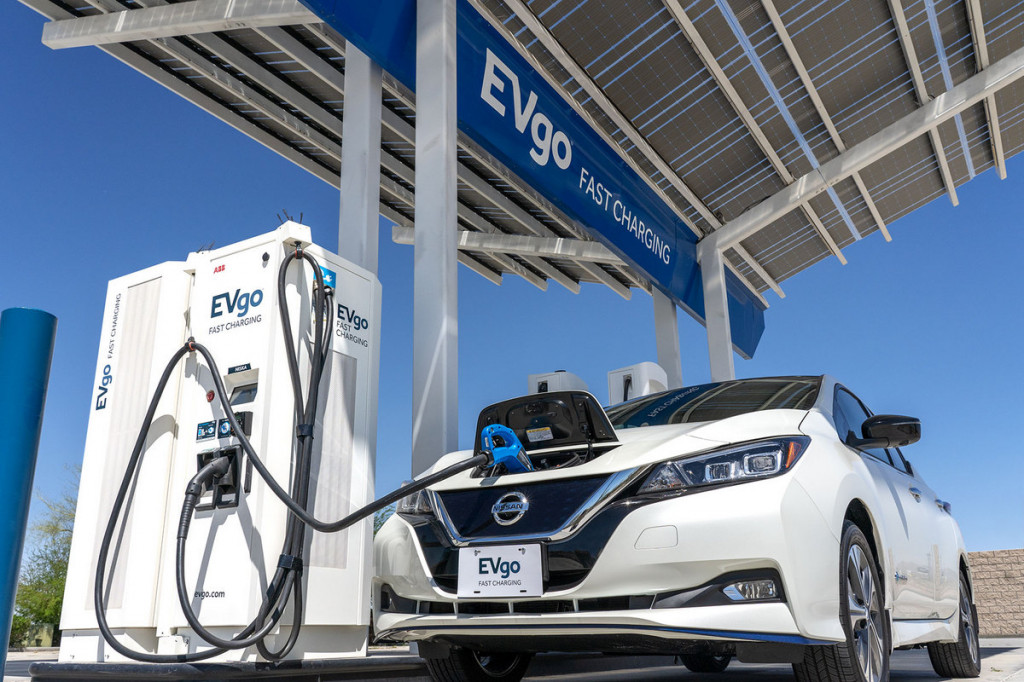The U.S. Supreme Court has decided not to review a challenge to California’s emissions authority, allowing the state to continue with its plans to phase out sales of new internal-combustion vehicles.
Oil and gas companies had challenged California’s Clean Air Act waiver, which permits the state to establish its own stricter emissions standards. The Court, however, only considered whether these companies had the standing to bring their claims.
This decision removes one potential threat to California’s regulatory authority, but there may be more challenges ahead. As California moves towards banning the sale of non-plug-in gasoline vehicles by 2035, conservative interests are taking aim at its EV-friendly policies.

Rivian Adventure Network charging site in Joshua Tree, California
The Heritage Foundation’s Project 2025, which could guide the incoming administration, does not call for a complete revocation of the waiver. Instead, it aims to limit the waiver to cover only pollution issues specific to California and to ensure that other states adopting California’s environmental standards do so only for traditional pollutants, not greenhouse gas emissions.
This move would effectively remove the EV component from California’s emissions standards, representing a more targeted approach against EV policy compared to the previous administration’s outright removal of California’s emissions authority in 2019. The Biden Administration later restored this authority after legal challenges.

Nissan Leaf charging at EVgo fast charger in Baker, California
In the past, several automakers reached agreements with California, supporting its emissions authority due to its global relevance. BMW, Ford, Honda, Volkswagen, and Volvo endorsed California’s emissions standards, while General Motors, Fiat Chrysler Automobiles (now Stellantis), and Toyota sided with the previous administration.
The future actions of the administration regarding clean energy and EV-focused policies remain uncertain. However, challenges to these policies would also mean challenging states’ rights, a fundamental value of the Republican Party.

